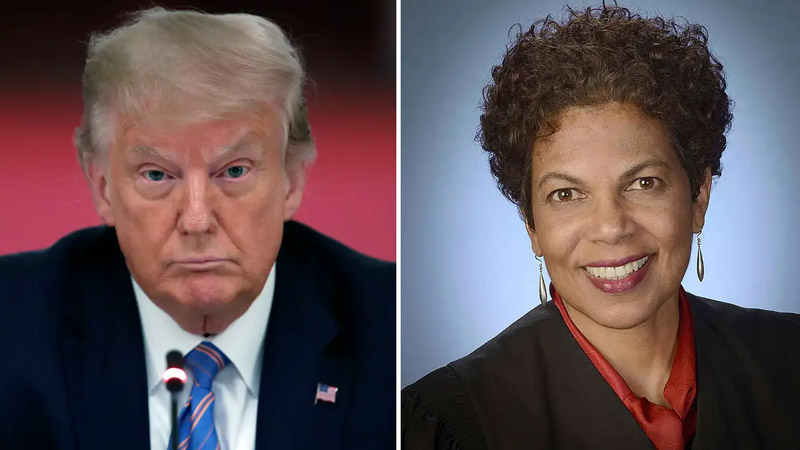Former President Donald Trump has been playing coy for weeks regarding whether he will deploy an advice-of-counsel defense in the federal case related to the 2020 election interference, overseen by special counsel Jack Smith.
This potential defense could be a crucial strategy for Trump, albeit with significant caveats, and the decision to employ it has now been compelled by Judge Tanya Chutkan. The ramifications of this directive, as highlighted by former federal prosecutor Harry Litman in the Los Angeles Times, are substantial.
“It will probably preempt a whole lot of mischief and delay by the defendant,” wrote Litman. “Trump has repeatedly suggested that he relied on his attorney’s advice in undertaking his flagrantly unconstitutional conduct after the election. Most expressly, Trump’s lawyer John Lauro claimed on ‘Meet the Press’ in August that what his client was ‘indicted for, ultimately, is following legal advice from an esteemed scholar, John Eastman.’ Lauro added that Trump was also following Eastman’s advice when he ‘petitioned Mike Pence’ to refuse to certify Joe Biden’s election.”
While an advice-of-counsel defense may appear as Trump’s best option, it comes with its own set of challenges. Notably, Trump’s lawyer Kenneth Chesebro’s plea deal in a Georgia election racketeering case could potentially result in his testimony against the former president. Such testimony might unveil Trump’s state of mind in his endeavors to overturn the election, adding complexity to the defense strategy.
“A defendant asserting it must be able to show that he relied in good faith on his counsel’s advice that the course of conduct was legal — that is, not just that he received the faulty advice but that he took it to heart. And he must also show that he fully disclosed all material facts to his attorney before receiving the advice,” he wrote. “The latter requires a step that few defendants are willing to take: waiving attorney-client privilege and disclosing all communications that will be used to establish the defense. Beyond that, a defendant must reveal otherwise privileged communications that are relevant to proving or undermining the defense even though they won’t be used at trial.”
Litman concludes that thanks to the judge’s order, Trump will be unable to attribute blame to his lawyers for the events of January 6 without delving into otherwise privileged materials and taking the stand to testify about his own good faith.
Considering these intricacies, Litman suggests that Trump may find it more prudent to abandon the advice-of-counsel defense altogether. The unfolding legal developments underscore the intricate dance between legal strategies, potential testimonies, and the nuanced challenges that Trump faces in navigating the complexities of the election interference case.
Matthew Chapman of Raw Story contributed to this report.



